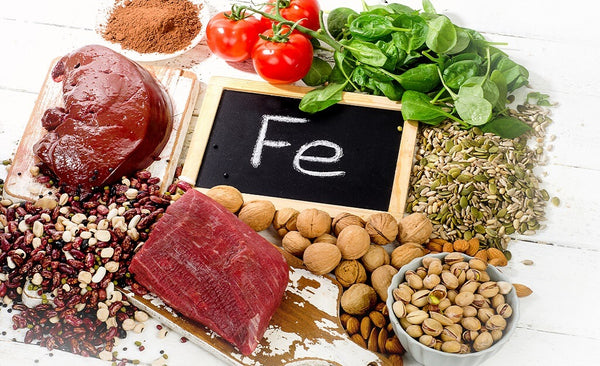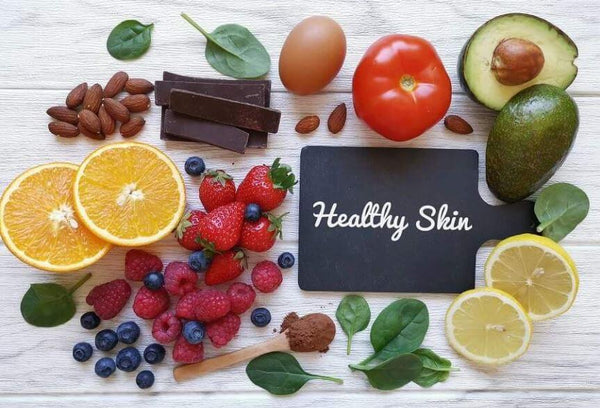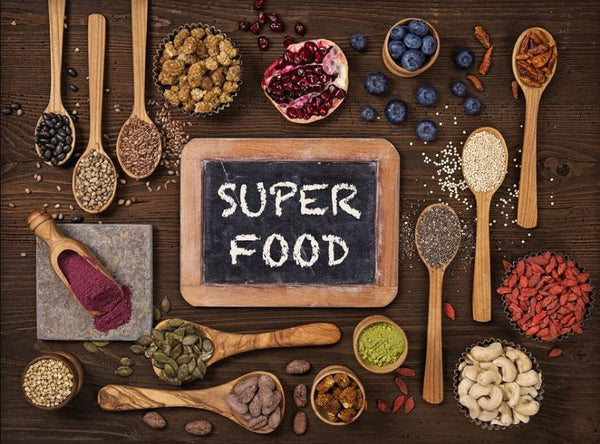
What are Inflammatory Foods?
The link between food and inflammation
Our diet is the number one factor contributing to your underlying levels of inflammation. For hormonal symptoms, inflammation plays a key role and we find that inflammation is increased with hormonal imbalances. Your endocrine system is highly sensitive to inflammation in the body. Conditions such as menopause, PMS, PMDD, fibroids, and especially endometriosis and polycystic ovary syndrome (PCOS) are inflammatory hormonal conditions that affect a significant number of women.
Studies have shown that certain foods can increase your risk of inflammation. By avoiding these inflammatory foods and embarking on a healthier diet, you can actually decrease your pain and better manage inflammatory symptoms.
Below are the most common food groups and substances that can increase your risk of inflammation:
Dairy
Studies have established that full-fat dairy, as well as skim dairy products which are full of sugar, can disrupt our gut microbiome. Dairy actually decreases levels of our good gut bacteria which are key players in reducing inflammation. Keep in mind that dairy is a common food allergen – with about 1 in 4 adults have a difficulty digesting milk – whether it’s lactose intolerance or a sensitivity to milk proteins. Any form of allergen can trigger inflammatory reactions through the release of histamines. Histamines are created when the body senses a foreign invader, such as a milk protein. This produces inflammation in the form of rashes, acne, mental fatigue, and pain.
Artificial Sweeteners
When our bodies can’t metabolise glucose properly, it can lead to a greater release of inflammatory cytokines, as is the case with sugar and refined carbs. On top of that, artificial sweeteners disrupt the composition of our gut microbiota by decreasing levels of the good bacteria Bacteroides. Bacteroides are known to help release anti-inflammatory compounds.
Artificial Colors
Most often made from petroleum (oil), artificial colourings have been implicated in a host of health issues, from disrupting hormone function to causing hyperactivity in children. A meta-analysis in the journal Alternative Therapies in Health and Medicine found that our immune system attempts to defend the body from these synthetic colourants which activate the inflammatory cascade. Studies also found ingredients used to artificially thicken foods can disrupt the bacterial makeup of the gut, leading to inflammation and weight gain.
Saturated Fats
Multiple studies have connected saturated fats with triggering white adipose tissue (white fat) inflammation. This white tissue is the type of fat that stores rather than burns energy like brown fat cells do. And as your fat cells get bigger with greater intakes of saturated fats, they actually start a reaction in the body that creates inflammation.
Meat
“A large study links red and processed meat with higher risk of heart disease and death. Eating two servings of red meat, processed meat or poultry–but not fish–per week was linked to a 3 to 7 percent higher risk of cardiovascular disease. Eating two servings of red meat or processed meat–but not poultry or fish–per week was associated with a 3 percent higher risk of all causes of death”.
One issue with meat is the farming of animals. Persistent Organic Pollutants (POPs) are toxic synthetic chemicals that accumulate in fat. Some of the POPs are PCBs, dioxins, DDT, and flame retardants used in clothing and furniture. POP’S disrupt endocrine pathways and may contribute to cancer, heart disease, hypertension, obesity, and diabetes. POPs enter our body largely from animal products that we eat. POPs in animal fat from red meat is much higher than the levels found in vegetables, fruits, and grains.
Another issue is the creation of inflammatory carcinogens when we fry or grill meat at high temperatures. If you are going to cook red meat try to use an acidic marinade to help break down these compounds.
Besides limiting red meat consumption to once a week, make sure you pick up lean cuts of organic, grass-fed beef for your protein. This healthy source provides more beneficial saturated and trans fats as well as inflammation-fighting omega 3's.
Processed Meats
Processed meats are typically made from red meats high in saturated fats and contain large levels of advanced glycation end products (AGEs). AGEs are inflammatory compounds that are generated when these processed meats are dried, smoked, pasteurized, and cooked at high temperatures.
That’s not to mention the fact that these highly-altered meats are injected with nitrates, preservatives, colourings, and artificial flavourings that also register as foreign attackers to our immune system.
White Bread & Bakery Treats
Many of the breads on the market can go from flour and yeast to baked bread in just a few hours. But this shortening of the period of fermentation causes a decrease in the amount of starch and gluten the yeast typically can pre-digest for us.
Without this assistance in digestion, it can be harder for our bodies to process the bread’s gluten, causing inflammation in the lining of the intestines. This is possibly one of the reasons for the rise in gluten sensitivity. Another theory is that modern strains of wheat contain amylopectin A, a super-starch shown to have inflammatory effects. Wheat is also grown with an array of chemicals and processed with bleaches and more chemicals known to cause inflammatory responses. Sourdough bread, especially if it’s organic, is a fermented food that can provide some healthy probiotics.
Alcohol
While some research has shown that a drink a day (a glass of red wine) can lower levels of the inflammatory biomarker C-reactive protein (CRP), too much alcohol actually has the opposite effect. That’s because the process of breaking down alcohol generates toxins by residues which can damage liver cells, promote inflammation, and weaken the body’s immune system.
Trans Fats
Synthetically produced, partially hydrogenated oils – also known as trans fats – do not occur naturally in foods and our body doesn’t possess an adequate mechanism to break them down. When our body senses an unknown foreign object, it can stimulate an inflammatory response.
According to the Mayo Clinic, these trans fats can cause inflammation by damaging the cells in the lining of blood vessels. An unhealthy diet loaded with trans fats can cause high inflammatory markers in blood tests.
A word on plastics
Similar to BPA, phthalates are used in plastic food and beverage packaging — and they’re not just staying there. A recent study concluded that people who often ate fast food had dose-dependent higher levels of phthalate metabolites than infrequent eaters. A separate study published in Environmental Science & Technology found phthalates to be associated with the CRP marker for inflammation, while another study in Environmental Health connected higher exposure to phthalates with metabolic syndrome, a disease also commonly associated with increased levels of inflammation.
Summary
As you can see, certain food choices can increase your risk of inflammation. Make healthy substitutes in your dietary choices so you can change your inflammation status or better yet, prevent it completely.
Certain foods act as natural anti-inflammatories and by increasing these foods you effectively quench inflammatory compounds in the body. Turmeric is a well-known anti-inflammatory along with fish oils and cold-pressed plant oils. Superfoods like turmeric are an excellent addition to a healthy diet to assist in reducing overall inflammation levels and the inflammatory process.

Summary
Having a predominantly plant-based diet loaded of green foods triggers an alkaline body pH which reduces inflammation levels. Our 8-week program is the perfect program to follow to avoid inflammatory foods and increase natural anti-inflammatory foods to the diet.
If you are suffering from symptoms associated with inflammation or hormonal imbalances we strongly suggest taking 10 minutes to complete our women's health online health assessment. It is free and we will send you a comprehensive report outlining your next steps to take back control of your symptoms and health naturally.
REFERENCES
Kelly K. Ferguson, Rita Loch-Caruso, and John D. Meeker. Exploration of Oxidative Stress and Inflammatory Markers in Relation to Urinary Phthalate Metabolites: NHANES 1999–2006. Environmental Science & Technology. 2012 46 (1), 477-485.
https://pubs.acs.org/doi/abs/10.1021/es202340b
Janice K. Kiecolt-Glaser, Ph.D. Stress, Food, and Inflammation: Psychoneuroimmunology and Nutrition at the Cutting Edge. Psychosomatic Medicine. 2010 May; 72(4): 365–369.
https://www.ncbi.nlm.nih.gov/pmc/articles/PMC2868080/
Minihane AM, et al. Low-grade inflammation, diet composition and health: Current research evidence and its translation. The British Journal of Nutrition. 2015 Oct 14; 114(7): 999–1012.
https://www.ncbi.nlm.nih.gov/pmc/articles/PMC4579563/
Yuval Itan, Adam Powell, Mark A. Beaumont, Joachim Burger, Mark G. Thomas. The Origins of Lactase Persistence in Europe. PLOS Computational Biology. 2009 Aug 28.
https://doi.org/10.1371/journal.pcbi.1000491
Northwestern University. "Eating red meat and processed meat hikes heart disease and death risk, study finds." ScienceDaily. 2020 Feb 3.
https://www.sciencedaily.com/releases/2020/02/200203114328.htm






















